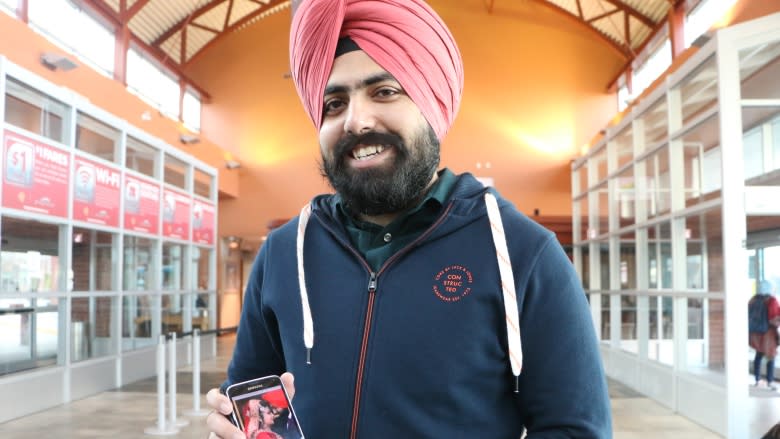Long odds for international students to land a job
This week, CBC Windsor is featuring some of the major projects by students in the media convergence program at St Clair College. CBC Windsor has teamed with the students to help highlight their work online and on the radio on Windsor Morning.
An ever-increasing number of international students flock to Windsor's post secondary schools hoping to improve their employment prospects.
But they are paying a premium for the opportunity.
After graduating, many international students face a reality similar to their Canadian counterparts. Job opportunities aren't as fruitful as they'd hoped.
Other stories from St. Clair College students include:
For students coming to Windsor, Ont., the University of Windsor offers international students an education and promises to prepare them for employment in Canada, should they choose to stay.
More than 3,000 international students attend the University of Windsor, with most enrolled in the school's graduate programs. Close to 20 percent of the school's student population is coming to the school from outside Canada.
"My dream is to be a network administrator; I am still searching for that," said Navpreet Singh, originally from the Punjab region of India. He graduated with a master's degree in electrical engineering from the University of Windsor in 2013.
His family had to bet the farm on his future to get to that position.
"Over there, it is a farming area, everyone has land. We do have land, we sold it to pay for my tuition fee." Singh said.
Singh, like all international students in the electrical engineering graduate program, paid almost three times what Canadians are charged in base tuition per semester.
Canadian students pay close to $3,000 per semester. Sing's bill? He says he paid $9,000 per semester, though he says it was worth it.
But he says his dream has faded since graduation. He works in technical support at a local call centre where he earns slightly more than minimum wage.
"I was thinking, you do the degree you get the job," he said. "Back home there is so much competition and the pay scale is not accordingly [to qualifications]. That's why people think it's better to come outside."
University cannot promise jobs
The University says it can only offer an education, with the rest being up to the the graduates themselves.
"We cannot promise any jobs to anyone. The university is not in the business of running a company. We are in the business of education," said Ram Balachandar, a school official responsible for international development.
"Does the university need to do more? Definitely the university needs to do a lot more," Balachandar said. "When we look at employment, we strongly urge students not to just look at Windsor but to [to look at] all of Canada."
Balachandar said the school's sharp increase in international students over the past five years is due to its niche programs and through a strong reputation.
Since the university only collects graduate's employment statistics on a voluntary basis, it does not have an accurate gauge on how recent graduates fare in the job market.
Looking to stay in Canada
For Singh, he said he'd prefer to stay here if offered a job in his field.
"I have given interviews in Ottawa, they were asking if I would move, would it be an issue for you. I can move anytime just give me the job," Singh said. "I don't want to leave a job move to another city to start finding another job and then start again."
Enrique Chacon, the former international student advisor at the University of Windsor, said more resources need to be offered to internationals just to put them on the same playing field as domestic students.
"International students are starting from behind the starting line," he said. "So to give the same to international students doesn't necessarily mean they are getting what they need."
Chacon said the lack of employment opportunities is related to the lack of communication between prospective employers and the university and there is little support for international students after graduation.
Yvonne Currie, the career development coordinator at the University, tells students to be realistic about their expectations.
"It's a reminder that you might not start in the job title you think you are going to start in," Currie said. "It may be getting comfortable in how to research organizations to get your foot in the door and working your way up."
While Singh continues to look for work in his field, he keeps in touch long distance, via Skype, with his new bride.
They were married last December. His wife is a telecommunications professional in India and she also plans to get a Canadian university degree when she arrives.
Despite Singh's experiences, he's optimistic about her chances for success.
"They want the kind of person that has the right education and experience," he said.

 Yahoo Finance
Yahoo Finance 

